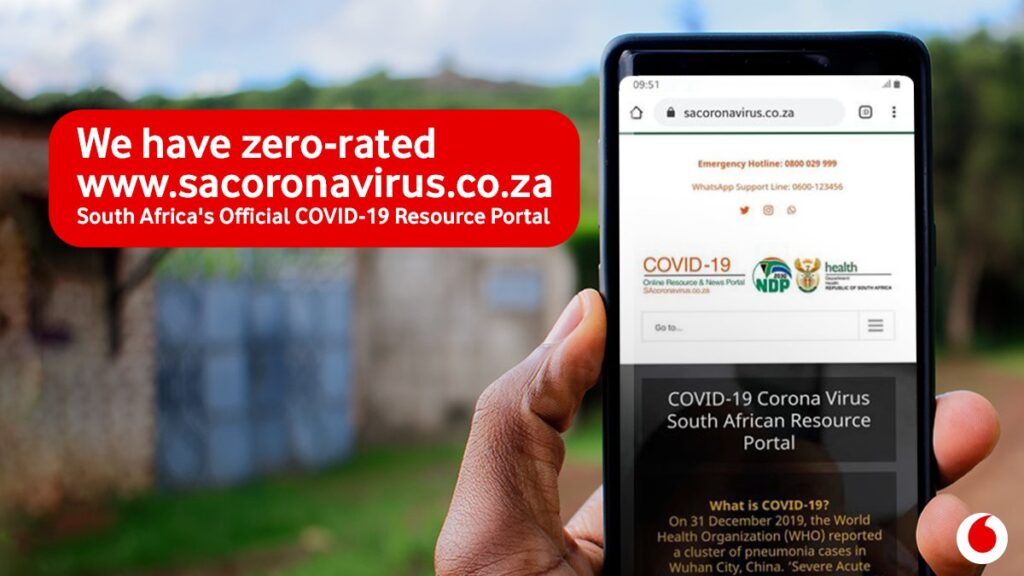How Vodacom Became a Leading Telecommunications Provider in South Africa: A Journey of Innovation and Strategic Growth

How Vodacom Became a Leading Telecommunications Provider in South Africa: A Journey of Innovation and Strategic Growth. In 1994, as South Africa was entering a new era, Vodacom was born. It emerged as a joint venture between Vodafone Group and Telkom SA, both powerful players in their respective fields. The country was on the brink of transformation, and Vodacom was there, ready to usher in the digital age. The telecom landscape was ripe for disruption, and Vodacom seized the opportunity, not just by offering mobile services, but by positioning itself as a brand that people could trust, connect with, and rely on.
Vodacom’s story is one of strategic vision, resilience in the face of challenges, and a relentless pursuit of innovation. As one of the most successful telecom providers in South Africa, its journey offers lessons that aspiring entrepreneurs can apply in their own ventures.

Building Trust Through Authenticity
In the early days, Vodacom recognized that success wasn’t just about providing mobile connectivity—it was about creating a brand that people could trust. South Africa was home to a competitive and often fragmented market, and customers were looking for more than just a network provider. They wanted reliability, accessibility, and a company that genuinely understood their needs.
Vodacom focused on crafting a message that resonated with the South African public. Through campaigns like “Power to You,” Vodacom communicated a sense of empowerment, reliability, and connection. These messages aligned with the local cultural values, which helped Vodacom build a foundation of trust. The brand’s authenticity became a defining feature, ensuring that, even as competition grew, Vodacom remained a name people could count on.
Insight for Entrepreneurs: Authenticity is the foundation of customer loyalty. Building trust with your audience takes time and consistent messaging. Always stay true to your brand’s values, and customers will follow.
Strategic Marketing and Partnerships
One of Vodacom’s most successful strategies was its ability to forge valuable partnerships. Its joint venture with Vodafone not only gave Vodacom access to cutting-edge technology but also allowed the company to bring international expertise to South Africa. This global collaboration positioned Vodacom as a leader in an emerging telecom market, enabling the company to quickly expand its infrastructure and improve its services.
At the same time, Vodacom understood the importance of adapting global strategies to the South African context. The company focused on local partnerships and tailored its marketing campaigns to speak directly to the needs and aspirations of South African consumers. Vodacom’s advertising was not just about selling a service—it was about creating emotional connections with its audience.
Insight for Entrepreneurs: Strategic partnerships can provide your business with the resources and expertise to grow. Look for collaborations that align with your vision and provide mutual value. It’s not just about global connections but about making them work for your local market.

Overcoming Challenges with Resilience
As Vodacom grew, it didn’t face an easy path. The South African telecom market was highly competitive, with players like MTN and Cell C constantly vying for market share. At the same time, the regulatory environment presented its own set of challenges. But Vodacom’s resilience shone through as the company navigated these obstacles.
Vodacom took a proactive approach to overcoming competition by investing heavily in its network infrastructure. This commitment to quality paid off, and the company became known for providing one of the most reliable mobile networks in the country. Moreover, when Vodacom launched its LTE (4G) network, it set the benchmark for mobile internet in South Africa, helping it maintain its competitive edge.
Vodacom’s ability to stay ahead of its competitors by continually improving its infrastructure and services was a key factor in its success. It didn’t just respond to challenges—it anticipated them and acted accordingly.
Insight for Entrepreneurs: Resilience is about adapting and evolving. The path to success is rarely straightforward, and the ability to pivot when necessary will determine whether you survive or thrive. Don’t just react to challenges—use them as an opportunity to innovate.
Embracing Innovation
Vodacom’s success is also deeply tied to its willingness to innovate. While its competitors were focusing primarily on mobile voice services, Vodacom saw the future in mobile data. In the early 2000s, mobile internet was still in its infancy in South Africa, but Vodacom was quick to invest in infrastructure to deliver internet access to its customers.
But Vodacom’s innovation didn’t stop there. In 2021, the company launched VodaPay, a super app developed in collaboration with Alipay. This app allowed users to make payments, transfer money, and manage their finances from their phones, promoting financial inclusion in a country with a large unbanked population. VodaPay wasn’t just a mobile wallet—it was a solution to a pressing problem, offering millions of South Africans easier access to financial services.
Vodacom also made a bold move to make the internet more accessible by rolling out LTE and ensuring that mobile internet was within reach for as many South Africans as possible. By making these early investments, Vodacom set itself apart as a forward-thinking telecom provider.
Insight for Entrepreneurs: Innovate continuously. The market is always evolving, and staying ahead of trends can give your business a lasting edge. Look for problems in your industry that need solving and develop creative solutions that can benefit your customers.

Regional Expansion: Going Beyond South Africa
While Vodacom established itself as a leader in South Africa, the company recognized that the African market held vast potential. With this in mind, Vodacom expanded into several countries across the continent, including Tanzania, Mozambique, and the Democratic Republic of the Congo (DRC).
Vodacom’s approach to regional expansion was thoughtful and deliberate. It didn’t simply push its services into these new markets; instead, it took the time to understand the unique challenges and needs of each country. For example, Vodacom partnered with local stakeholders to ensure that its services would be tailored to the specific demands of each region.
A key example of Vodacom’s innovation in regional expansion came in 2025, when it entered into a joint venture with Orange to build 2,000 solar-powered base stations in rural DRC. This partnership aimed to provide mobile coverage to underserved regions, showcasing Vodacom’s commitment to improving connectivity across the continent.
Insight for Entrepreneurs: Expansion into new markets requires thorough research and localization. Understand the local needs, regulations, and challenges, and adapt your approach accordingly. Regional expansion can be a game-changer, but it requires careful planning and a deep understanding of each market.
Corporate Social Responsibility: Giving Back to Communities
Throughout its journey, Vodacom has been committed to making a positive impact on society. Through the Vodacom Foundation, the company has supported numerous initiatives in areas like education, health, and environmental sustainability.
For instance, Vodacom’s projects aimed at improving access to education and healthcare in rural communities have helped position the brand as one that cares about more than just profit. This focus on corporate social responsibility has further strengthened Vodacom’s reputation, especially among consumers who value ethical business practices.
Insight for Entrepreneurs: Corporate social responsibility isn’t just a buzzword—it’s an opportunity to build brand loyalty. Consider how your business can give back to the community in a meaningful way. Positive social impact can be a powerful differentiator in the marketplace.

Conclusion: Key Lessons for Aspiring Entrepreneurs
Vodacom’s journey from a startup to one of South Africa’s leading telecommunications providers is a remarkable story of vision, resilience, and innovation. From navigating regulatory hurdles and fierce competition to embracing digital transformation and expanding across the African continent, Vodacom has demonstrated what it takes to build a successful brand.
For entrepreneurs, the key takeaways are clear: be authentic in your approach, innovate relentlessly, invest in strategic partnerships, and remain resilient in the face of challenges. By applying these principles, you too can build a brand that not only survives but thrives in an ever-changing business landscape.


